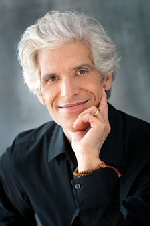Episode 131 :: Joe Loizzo :: Sustainable Happiness: The Mind Science of Well-Being, Altruism, and Inspiration
Dr. Joe Loizzo
Dr. Joe Loizzo of the Nalanda Institute for Contemplative Science speaks with us about his new book Sustainable Happiness: The Mind Science of Well-Being, Altruism, and Inspiration
One of the things we struggle with is this notion of the scientific validation for contemplative practice. We do see studies that have interesting and sometimes compelling, if not conclusive, results to show that meditation may have greater benefits that just relaxation. And our application of modern scientific methods is very early in the development of ways to consistently measure subjective experience. Because it’s all not firmly nailed down in exacting detail, however, doesn’t mean we should immediately stop our practice. Studies can confirm a biological validity to what we’re experiencing, and brain scans can indicate wonderful new avenues for therapeutic applications previously unconsidered. And we can still keep practicing, as has been done for thousands of years, while we learn more about what’s going on in our minds.
Joe Loizzo, MD, PhD, is a psychotherapist and founder of the Nalanda Institute for Contemplative Science, a contemplative learning community that teaches timeless tools of self-healing and interdependence for today’s complex world. On faculty at the Weill Cornell Center for Integrative Medicine and the Columbia University Center for Buddhist Studies, Dr. Loizzo lectures widely on the role of contemplative science in the future of health, education and contemporary life, and teaches regular public classes and workshops through Nalanda Institute and Tibet House US.
So, sit back, relax, and have a nice Guranse Estate organic tea.
Podcast: Play in new window | Download
Books
Web Links
- Nalanda Institute for Contemplative Science
- Sustainable Happiness
- Shinzen Young article
Music for This Episode Courtesy of Rodrigo Rodriguez
The music heard in the middle of the podcast is from Rodrigo Rodriguez. The track used in this episode is “Hon Shirabe” from his CD, Traditional and Modern Pieces: Shakuhachi.

